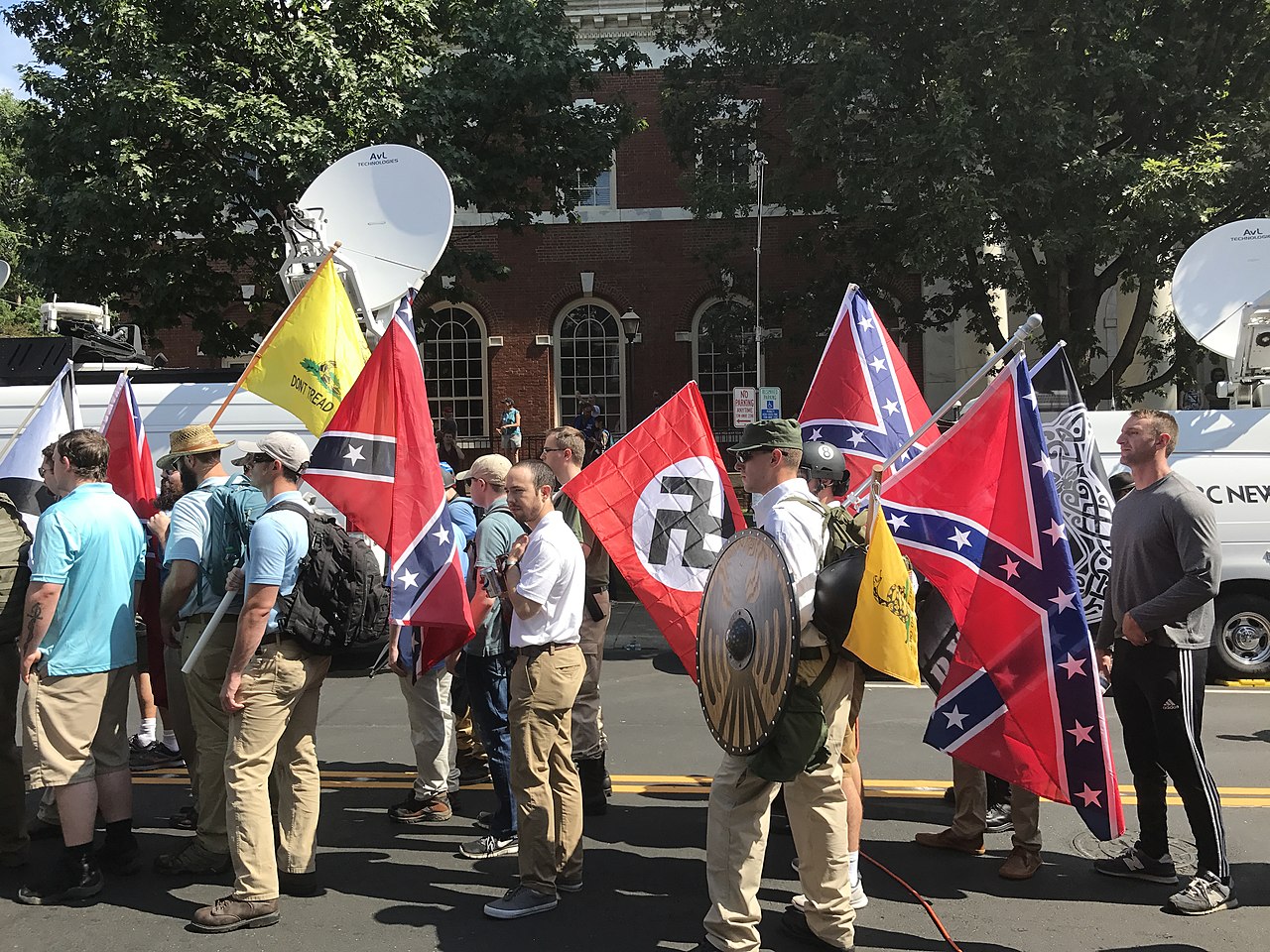Abstention in Nashiri: The Government Responds
With the ruling in Al Bahlul IV still outstanding, the D.C. Circuit is set to hear argument next month on the military commission trial – yet to take place – of Abd al-Rahim al-Nashiri, the Guantánamo detainee charged with planning the 2000 bombing of the USS Cole in Yemen, among other offenses. Nashiri’s challenge raises corollary questions to Al Bahlul about the scope of military commission jurisdiction.
Published by The Lawfare Institute
in Cooperation With

With the ruling in Al Bahlul IV still outstanding, the D.C. Circuit is set to hear argument next month on the military commission trial – yet to take place – of Abd al-Rahim al-Nashiri, the Guantánamo detainee charged with planning the 2000 bombing of the USS Cole in Yemen, among other offenses. Nashiri’s challenge raises corollary questions to Al Bahlul about the scope of military commission jurisdiction. On December 28, the government filed its brief, while Nashiri’s brief is set for declassified release on Thursday.
In its brief, the government responds directly to an amicus brief from the National Institute of Military Justice (NIMJ), co-authored by Steve Vladeck. The amicus argues that abstention – the route taken by the district court – premised on Schlesinger v. Councilman is inappropriate both for the Guantánamo military commissions generally and Nashiri’s jurisdictional challenge in particular. [Steve has previously written about the issues here and here and here.] Below is a short overview of the merits issue and the government’s not-especially-surprising argument, followed by a look at the abstention question and the government’s response to the NIMJ brief.
Overview of the Merits
Nashiri claims, in short, that the military commission lacks subject-matter jurisdiction because his alleged offenses were not “committed in the context of and associated with hostilities” as required by 10 U.S.C. § 950p(c). As in Al Bahlul, the merits here could define the scope of military commission jurisdiction: Does it extend to offenses that pre-date 9/11? Does it encompass offenses committed in, for example, Yemen rather than Afghanistan? The case consolidates Nashiri’s petition for a writ of mandamus and an appeal from the district court’s stay of his habeas petition; the underlying merits questions are the same in both.
The government contends that the hostilities requirement is a factual inquiry that depends on whether the conflict was “sufficiently intense and organized,” rather than merely characterized by “sporadic and isolated” instances of armed violence. Drawing largely on the 9/11 Commission Report, the brief argues that there was a singular and sustained “armed conflict with the al Qaeda terrorist organization,” “[g]oing back to at least 1998,” and possibly as far as 1996, which included attacks spanning from Kenya and Tanzania to Afghanistan. Gov’t Br. 5. It also argues that “the geographic scope of military commission jurisdiction is not limited to conduct occurring in a theater of active military operations,” citing Congress’s clear intent that the MCA “apply to the 9/11 attacks, which did not occur in a theater of active military operations.” Gov’t Br. 18. Nashiri’s offenses, according to the government, were “one arm of an ongoing offensive that included the 9/11 attacks,” and as such, clearly satisfy the statute’s nexus-to-hostilities requirement.
Although there is more to be said on the merits – and will be even more once Nashiri’s brief is released on Thursday – below is a narrower look at the government’s response to the NIMJ brief on Councilman abstention. The underlying theme that ties the government’s merits analysis to its abstention argument is that the military commissions are better equipped to answer the factual question of when “hostilities” began.
Before jumping to abstention, however, it is worth noting that the government argues that “Nashiri’s self-styled habeas petition does not challenge the fact, place, duration, or conditions of his confinement,” and therefore does not sound in habeas at all. This isn’t an argument that the district court addressed and it is unclear how that argument squares with Hamdan.
The Amicus Brief and the Government’s Point-by-Point Response
Councilman abstention has popped up all over the place in military commissions cases. Both the D.C. Circuit and the Supreme Court rejected the argument in Hamdan as applied to the pre-MCA commissions. But Councilman was the basis for dismissal of Nashiri’s suit in the Western District of Washington, though the Ninth Circuit did not address it on appeal, and it has now been used again by the D.C. district court, the decision from which Nashiri appeals here.
The NIMJ brief makes alternate claims: either (1) Councilman abstention should not apply to the Guantánamo military commissions at all because Councilman is justified by considerations of comity specific to courts-martial, or (2) even if it might be appropriate in some Guantánamo context, it is not appropriate in Nashiri’s case given the nature of his challenge and how his commission has thus far played out.
The government’s brief takes a point-by-point approach in responding to the amicus. First, the amicus argues that Councilman shouldn’t apply because (1) Nashiri isn’t a U.S. military member being tried for military offenses, and (2) the military commissions system isn’t structurally independent like courts-martial. The government responds that this is an “unduly narrow view,” that Councilman rested on broader notions of deference between the coordinate branches, and that “[a] system established by Congress and the Executive to disable, deter, and punish unprivileged enemy belligerents merits just as much (if not more) deference as a system of military discipline for military servicemembers.” Gov’t Br. 51. The government does not really tackle the problems of squaring its theory with Hamdan, except to say that, “the Supreme Court expressly left open ‘the possibility that abstention may be appropriate in some cases [where a detainee] seek[s] review of ongoing military commission proceedings.’” Gov’t Br. 51-52. One problem with this response is the omitted parenthetical – “(such as military commissions convened on the battlefield)” – that suggests the Court might have had military commissions of a fundamentally different character in mind.
The government’s key argument is that each of the post-MCA applications of Councilman in the district courts has upheld abstention solely on the basis of the MCA. That is, the courts have relied on the second Councilman comity consideration, the existence of a statutorily-sanctioned integrated system of military justice, to distinguish the Hamdan military commissions to which abstention wasn’t warranted and the post-MCA commissions. The amicus argues that the MCA isn’t enough. Courts-martial are a “wholly separate trial and appellate structure” in which Article III courts have a very limited role. NIMJ Br. 14. The government responds that Councilman abstention cannot rely on courts-martial being wholly separate because decisions in that system are reviewable by the Supreme Court. It does not address amicus’s note that review jurisdiction is limited and does not apply to all cases. Finally, the amicus argues, and the government agrees, that abstention assumes a military court system capable of protecting the rights of the accused. The amicus points out the “absence of meaningful mechanisms within the military commissions for internal self-correction,” citing especially the CMCR’s own procedural rules summarily denying petitions for extraordinary relief. NIMJ Br. 17. The government’s brief does not engage with that particular point.
The amicus’s alternate argument is that even if the MCA alone warrants the application of Councilman in some cases, it doesn’t warrant abstention from Nashiri’s petition where (1) the petition challenges the subject-matter jurisdiction of the military commissions to try his alleged offenses, and (2) given the ongoing stay of his constitutional challenge at the CMCR. The government distinguishes the exception to Councilman based on personal jurisdiction over the defendant from Nashiri’s challenge centered on subject-matter jurisdiction over the offenses. Note that subsequent cases have held that courts-martial jurisdiction depends exclusively on the status of the individual as a servicemember at the time of the offense. According to the brief, Nashiri confuses the right not to be tried by a commission based on your status, with the right not to be tried for a category of offenses. Here is where we loop back to the merits. The government argues that the civilian courts should wait for the commissions to decide what it characterizes as the factual question of whether the offenses were committed “in the context of and associated with hostilities.” The problem with that argument, which the amicus raises and the government fails to answer, is that there should be no deference at all insofar as that inquiry overlaps with the jurisdictional question (which it wouldn’t in the courts-martial context since jurisdiction there is a question only of status). As the amicus points out, “[i]f [Nashiri] is correct, then the military commission lacks the power to do any of that.” NIMJ Br. 23. Again, the government’s main argument is that preempting that factual question in the commission means that the district courts “would act without the benefit of [military commission] expertise” in the first instance. Gov’t Br. 54. The problem that the amicus raises is that this assumes that there should be some amount of deference given to the commission in determining its own subject-matter jurisdiction. The government points out that Councilman’s argument was roughly parallel to Nashiri’s – that his alleged offense was not triable by courts-martial because it was not “service connected.” But this ignores that subsequent cases have held that not to be a jurisdictional defect in courts-martial, which shouldn’t be said of the military commissions.
Finally, the amicus notes that abstention would be especially inappropriate given the yet-unremedied constitutional Appointment’s problem at the CMCR, which has left Nashiri’s proceedings there at a standstill for seven months. On Friday, the CMCR granted a continuation of the stay in the government’s appeal relating to the M/V Limburg charge against Nashiri as the government works on resolving that constitutional problem. The amicus argues that this prolonged and indefinite delay “certainly cuts against any argument that resolution of [Nashiri’s] claims by this court . . . will somehow further delay [Nashiri’s] trial.” NIMJ Br. 24-25. The government does not address that particular contention either.
We will have to wait until Thursday to see how Nashiri’s brief argues on the scope of military commission jurisdiction and until the February arguments for a hint as to whether the D.C. Circuit is inclined to reach the merits at all.





